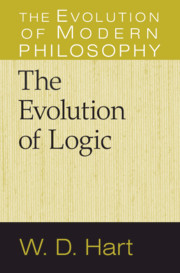Book contents
Three - Expeditions
Which Sets Exist?
Published online by Cambridge University Press: 05 June 2012
Summary
The Burali-Forti paradox was a crisis for Cantor’s theory of ordinal numbers; Cantor’s paradox was a crisis for his theory of cardinals; and Russell’s paradox was a crisis for Frege’s logicism. Had the crises been local, sets (and courses-of-values) might have gone the way of phlogiston, the stuff thought in the eighteenth century to be lost from something burning (and supplanted by oxygen taken up in burning). But sets (or their kissing cousins) were not going to go without a fight. We can make out at least four reasons for this resilience. Among philosophers, logicism retained a fascination that gave it room to evolve. Among mathematicians, Cantor’s theory of infinity retained a fascination that Hilbert, for one, would not abandon. Also among mathematicians, set theory became the framework, the lingua franca, in which – by and large – modern mathematics is conducted. Finally, there are the applications of set theory, of which those in logic are central for us.
Frege layered functions. A first-level function assigns objects to objects: doubling is a first-level function that assigns six to three; and the concept:green is a first-level function that assigns truth to all and only the green things. The derivative of the square function is the doubling function, while that of the sine is the cosine, so differentiation is a second-order function. In another example, Frege reads “There are carrots,” so its subject is the concept:carrot and its predicate is the concept:existence. Existence is thus a second-level concept whose value is truth at all and only the first-level concepts under which something falls. This allows Frege to refine Kant’s criticism of the ontological argument for the existence of God. Kant said that existence is not a predicate, which is heroic, or even quixotic, grammar. Frege could say that since existence is a second-level predicate, it is at the wrong level to be a defining feature of an object like God.
- Type
- Chapter
- Information
- The Evolution of Logic , pp. 59 - 88Publisher: Cambridge University PressPrint publication year: 2010

